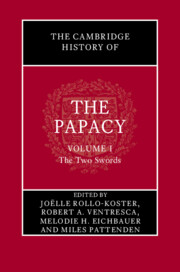From Constantine to Justinian
Abstract:
Three factors – Rome’s peripheral position, its rivalry with other sees, and the role of Roman aristocrats – shaped the ecclesiastical policy of the popes in late antiquity. Their claims to ecclesiastical authority across the empire were based on the reputation of the City of Rome. In addition, the Petrine tradition became crucial for the representation of late antique popes. From an Eastern perspective, however, they were no more than the patriarchs of the West. As they were not under the direct grip of the emperor, the popes possessed more agency than Eastern bishops, but this made it more difficult for them to influence imperial politics directly. Therefore, they composed treatises about the relationship between emperor and bishop, which answered concrete challenges, but were interpreted as fundamental texts later. In retrospect and in retrospect only, late antique papacy was the first step of a scale towards universal papacy.


